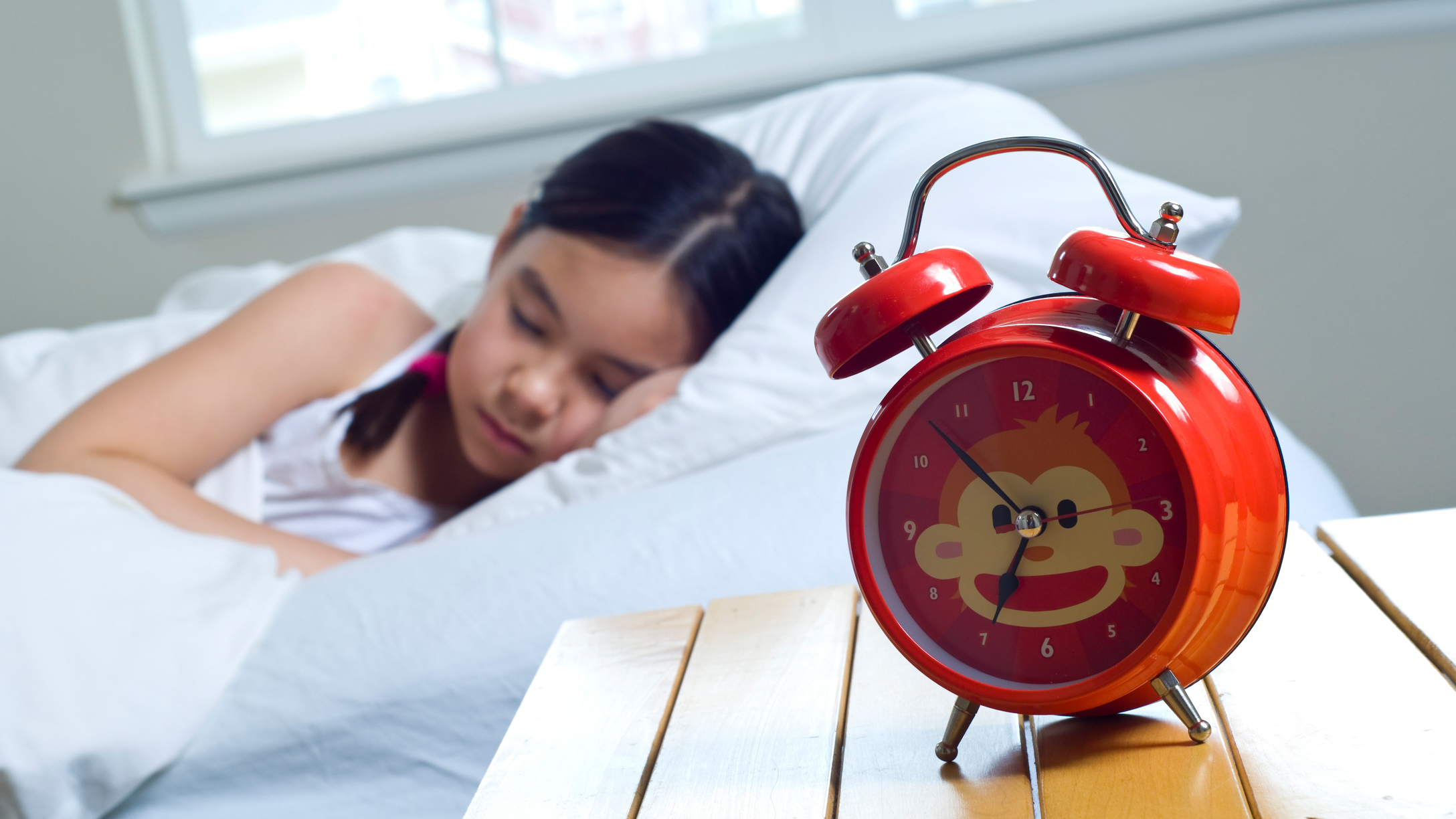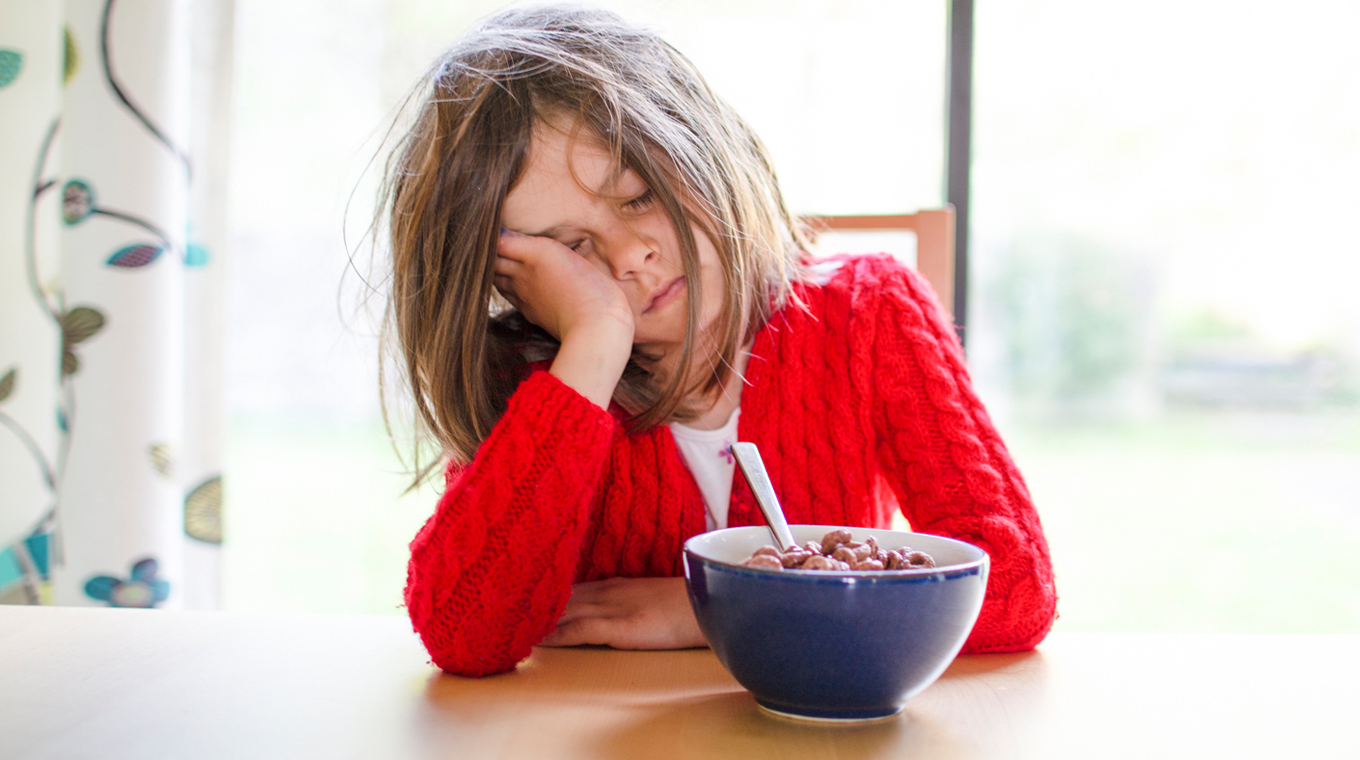
In this article
The days are getting shorter and we all know what that means: every parent’s worst nightmare — the end of Daylight Saving! Now that we’re parents, all this means is that our kids wake up at the regular time — except now it’s technically an hour earlier.
Sometimes we’re lucky and they adapt quickly to their “new” bedtime and wake-up time, but sometimes you need tips for how to adjust to Daylight Saving Time ending.
When is Daylight Saving Time ending?

Daylight Saving Time (DST) in the U.S. is the practice of moving clocks forward by an hour in the spring (“spring forward”) when the days get longer and warmer so that it gets darker and the sun sets at a later time. Then, we move the clocks back an hour in the fall (“fall back”) when the days get shorter and colder to jump back to Standard Time.
In 2021, at 2:00 a.m. local time on Sunday, November 7, DST will end and time will revert back to 1:00 a.m., at which point, we will be firmly in Standard Time.
Daylight Saving 2021: How it may affect kids

Time changes — which can be likened to jet lag — messes with our circadian rhythms. Adjusting to it can also be hard for adults, so it is no surprise that for some children, the end of DST can pose some difficulty, too. After all, DST only creates an illusion of a later sunrise and sunset — it doesn’t actually create more sunlight — and no sunlight is actually saved.
Wake up and fall asleep “earlier”
One of the most common issues for younger kids is that they wake up “earlier” and want to sleep “earlier,” too. It’s not actually earlier, of course. Their little bodies are just doing what they’ve always done — it’s the grown-ups who changed the clocks and are making them obey an arbitrary construct.
“You may find your teenager enjoying that extra hour of sleep or your toddler waking up even earlier than normal because of their natural circadian rhythm,” pediatrician Dr. Steph Lee, MD, MPH, FAAP, told Mom.com.
Sleepy and cranky kids
Because of the disrupted sleep patterns and being tired, your kids may be crankier than usual — especially when it nears their usual bedtimes. Children don’t tolerate inadequate sleep as well as adults, so give your kids plenty of grace (which is difficult if you’re also tired).
Decline in vigilance and cognition
Sleep loss can lead to being less alert and being slower to perceive or react to events. Research shows that teens tend to lose sleep in the “spring forward” portion of DST — which can be a concern for your teen drivers. This can also be a concern in the autumn if your teen is also losing sleep in the “fall back” portion due to going to sleep later.
How to help kids adjust to DST

Of course, there are ways to help ease the end of DST. And if you’re the type of parent to plan ahead, some of these tips may help.
Shift their bedtime gradually
Just like when you’re preparing your kids to travel across multiple time zones, you can push back your kids’ bedtime by about 15 minutes each day. Dr. Lee recommends starting about four days before DST ends. “This way, their natural internal clock will be used to sleeping at a later time,” she said. “Make sure to explain the change and prepare them for the switch in routine, especially if they can read clocks, since their bedtime hour doesn't actually change once daylight saving ends.”
Have a consistent bedtime routine
Just like when they were babies, consistency is key. “Stick to a consistent bedtime routine,” said Dr. Lee, “something your child finds calming, such as showering or reading a bedtime story together, to try to minimize how disruptive the time change will be.”
Have appropriate expectations
Give your children grace and expect them to be cranky, tired, and unusually temperamental. Don’t make a ton of plans the next day — especially later in the evening around their bedtime. “Be prepared for a period of adjustment and be patient with yourself too — usually the restless sleep won't last more than a week,” assured Dr. Lee.
Use lights to your advantage
If your child is groggy early in the morning or when it hits their previous bedtime, turn the lights on! Make sure they get a lot of sunlight so their bodies are cued to wake up and shift their circadian rhythm.
Don’t worry too much, though. Some of us parents, like Miranda Wicker, don’t make any accommodation at all. “You just know that it’s going to suck for a few days and soldier on,” she told Mom.com.




